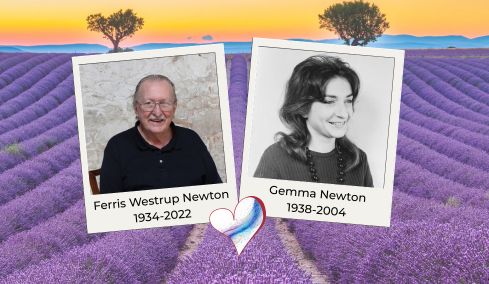The Fountain Centre has received a deeply meaningful legacy gift of £30,000 from the late Mr Ferris Newton, a former user of the Centre alongside his wife, Gemma. This generous donation is not only a tribute to the care and support they experienced here, but a powerful reminder of how legacy giving can help sustain our work for years to come.
Ferris Westrup Newton (1934–2022) was a sculptor, designer, and educator whose life journey took him from the rose gardens of Tyler, Texas to the creative heart of London and Farnham. After studying at Baylor University and Columbia, Ferris found his calling in industrial design at Pratt Institute, where he met Gemma Bontempo—a gifted American ceramist with a passion for cultural richness and artistic expression. Together, they moved to Surrey in the 1960s, where they taught, created, and inspired generations of artists.
Gemma (1938–2004) was a pioneering figure in ceramics education in Britain, known for her elegant, functional stoneware and her commitment to making art meaningful and accessible. Her teaching career spanned institutions like West Surrey College of Art and Design and Buckinghamshire Chilterns University College, where she introduced students to contemporary semiotics and the importance of cultural diversity in creative practice. Ferris and Gemma were internationalists at heart—believing that art could unite people across boundaries and that beauty, harmony, and love were universal values. Their legacy gift reflects that belief, and we are honoured that The Fountain Centre was part of their story.
Why Legacies Matter
As an independent charity, the Fountain Centre relies on donations to provide emotional, psychological, and practical support to cancer patients and their families. Legacy gifts—large or small—can make a transformative difference. They help us plan for the future, expand our services, and ensure that no one faces cancer alone.
Ferris’s gift will help us continue offering the kind of compassionate care that meant so much to him and Gemma. It’s a legacy of kindness, care, and connection—and we are deeply grateful.
If you’re considering leaving a gift in your will, please know that it could help change lives. Just like Ferris and Gemma’s legacy, your support can live on in every conversation, every moment of comfort, and every act of hope we offer.







